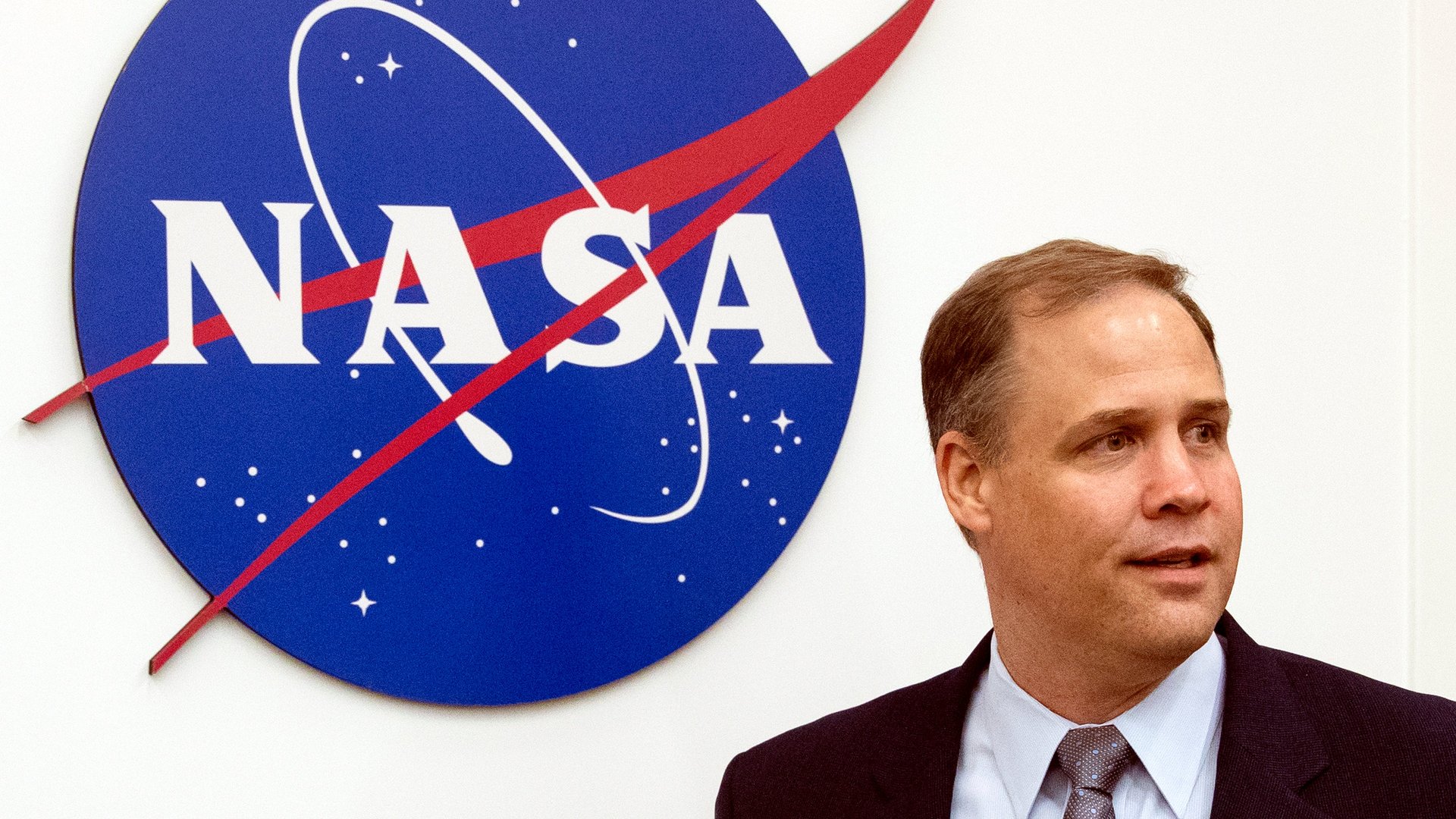NASA is getting cranky climate e-mails from the White House
Many Americans have been subjected to an e-mail thread from septuagenarians upset about climate science. It’s a different story when the recipient runs NASA and the sender is a member of the White House National Security Council.


Many Americans have been subjected to an e-mail thread from septuagenarians upset about climate science. It’s a different story when the recipient runs NASA and the sender is a member of the White House National Security Council.
Still, NASA administrator Jim Bridenstine is a busy guy, and maybe that’s why he hasn’t replied to any of the e-mails from a White House official criticizing his new views on climate change.
The US space agency has long been a key source of scientific data about the warming climate, thanks to measurements taken by its fleet of orbital satellites. When Bridenstine was tapped to head the agency, he was a conservative Oklahoma congressman who had criticized the idea of global warming. He quickly performed an about-face, with an assist from Bill Nye, to align his views with the scientists he would lead.
Not everyone appreciated the change.
“[H]ow Bridenstein [sic] or anyone else can say that humans are a major cause of warming is a puzzle to me,” William Happer, a Trump appointee to the National Security Council, wrote in an e-mail sent to NASA administrator on May 19. It was part of a conversation between Happer and Thomas Wysmuller, an official at the Heartland Institute, an oil industry-backed think tank that criticizes mainstream climate science.
Happer, a former Princeton professor, is part of a Trump administration effort to reverse the military and intelligence assessments that global warming matters to national security. The Environmental Defense Fund (EDF) filed a Freedom of Information Act request to see any NASA documents connected with that effort, which uncovered these e-mails.

Another NASA official, deputy administrator Jim Morhard, was forwarded an e-mail by Happer from an unidentified correspondent who complained that NASA’s educational content resulted in Australian children “being indoctrinated by this bad science.”
Nothing was changed on that website, and neither NASA official replied to the missives from their official account, though references to personal meetings abounded. There was no sign, per Ben Levitz, an EDF attorney who uncovered the documents, that NASA had participated in Happer’s review.
There was also no sign that the NASA leaders attempted to advocate for the scientists Happer criticized. He and Wysmuller both worked at NASA during the Apollo program, and salted their e-mails with criticism of the space agency, which they think is focused on too much “nonsense,” like rising sea levels and temperatures.
The two also implied that Bridenstine’s reversal on climate change was driven by expedience, not sincerity.
“I still believe Jim Bridenstine was trying to diffuse what is essentially a non mission-critical issue, as the Potomac estuary will not inundate NASA Headquarters anytime soon, or within anyone’s lifetime either,” Happer wrote about Bridenstine’s climate change comments.
“He’s entered a hornets nest without a smoke pot and I hope will methodically let the NASA ‘hive’ settle down,” Wysmuller wrote. “There is much to do there, major mission critical work in fact, and having a climate oriented disruption during his first month is not in his, or the nation’s, best interest. My guess is that he intelligently quickly read the ‘lay of the land’ and is acting accordingly.”
NASA spokesperson Bob Jacobs did not respond to queries about the correspondence or the agency’s climate research.